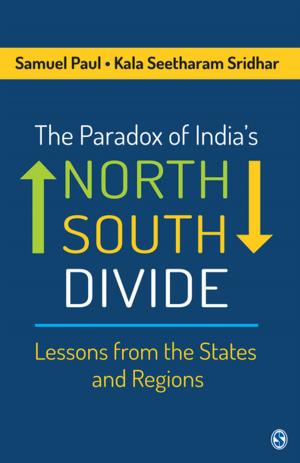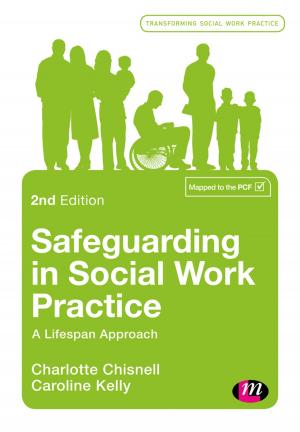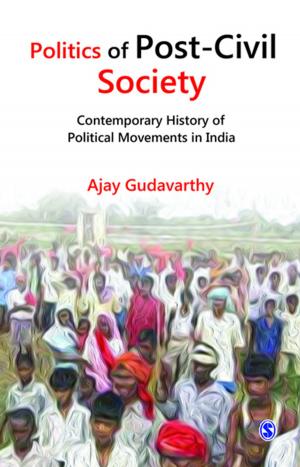Muslim Women Speak
Of Dreams and Shackles
Nonfiction, Social & Cultural Studies, Social Science, Gender Studies, Women&| Author: | Ghazala Jamil | ISBN: | 9789352805020 |
| Publisher: | SAGE Publications | Publication: | October 30, 2017 |
| Imprint: | Sage Publications Pvt. Ltd | Language: | English |
| Author: | Ghazala Jamil |
| ISBN: | 9789352805020 |
| Publisher: | SAGE Publications |
| Publication: | October 30, 2017 |
| Imprint: | Sage Publications Pvt. Ltd |
| Language: | English |
Muslim women have mostly been discussed and studied as passive victims who have no agency. Muslim Women Speak seeks to correct this by traversing an expansive canvas of dreams, aspirations, memory and everyday lives of both the ‘researcher’ and the ‘researched’ in an extensive study conducted in several states of India. Through a presentation and analysis of Indian Muslim women’s narratives about their own situation, the book challenges the image of Muslim women as historic victims of Islam and Muslim men. The book includes insights on the agency of young Muslim women and the impact of violence on their everyday lives after a violent ‘event’ or ‘episode’ passes into history and memory. It brings forth not only the ‘voices’ that have long been considered ‘silent’ but also dwells upon the epistemological and socio-political concerns of this ‘silencing’. In doing so, this book confronts the fault lines within the Indian feminist sisterhood and offers a considered critique of the women’s movement in India from within. The book will be mandatory reading for activists, government departments, policy planners, and students and scholars of gender studies and sociology.
Muslim women have mostly been discussed and studied as passive victims who have no agency. Muslim Women Speak seeks to correct this by traversing an expansive canvas of dreams, aspirations, memory and everyday lives of both the ‘researcher’ and the ‘researched’ in an extensive study conducted in several states of India. Through a presentation and analysis of Indian Muslim women’s narratives about their own situation, the book challenges the image of Muslim women as historic victims of Islam and Muslim men. The book includes insights on the agency of young Muslim women and the impact of violence on their everyday lives after a violent ‘event’ or ‘episode’ passes into history and memory. It brings forth not only the ‘voices’ that have long been considered ‘silent’ but also dwells upon the epistemological and socio-political concerns of this ‘silencing’. In doing so, this book confronts the fault lines within the Indian feminist sisterhood and offers a considered critique of the women’s movement in India from within. The book will be mandatory reading for activists, government departments, policy planners, and students and scholars of gender studies and sociology.















